Discovery of Electricity
Part – 2 , From Antiquity through Middle Ages
A Tertiary Discourse
The previous part contained the experience of antiquity (2750 BC Egypt) on electricity (Proto-history). Then experiments of Thales (600 BC) on magnetism and static electricity were also narrated. In about 2,200 years in-between, mankind had progressed this far that he now know about the attractive property of magnet, know the attractive property from friction on certain objects and could differentiate between the two. The reason behind such behaviour was yet to be established.
This knowledge was gathered in Greece. But in similar time lime, what was gathered in the other parts of the then- habitated world is still under the veil of proto-history or myth. The achievements on scientific pursuits by Sumer people (Mesopotamia, today’s Iraq), or Indus Valley people ( Harappa Mahenjo Daro, Indian subcontinent) is not known, though all of them existed around a similar time tine.
From then, the story of next 2,200 years is also very sketchy. This time span was that in which the world was passing from antiquity through medieval ages and arriving at the threshold of Renaissance/ Modern Times.
Such times had their inherent handicaps. Writing paper or printing press had not arrived (printing press arrived only in 1440). People used to write on Papyrus (a plant based product), Parchment (animal hide, battered), Cloth Roll or Palm Leaves – based on the local availability. On them, any newly acquired knowledge had to be written by hand. Then copies were to be made again by hand (for any circulation) – word by word, page by page. The process was time consuming as well as expensive. So discovery of new knowledge mostly remained as solitary pursuit and hardly found any dissemination.
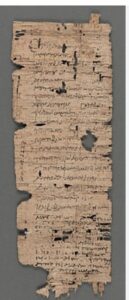
Ancient Papyrus Document
Secondly, distant geography of the then-habitated lands posed challenges for the knowledge to travel to different lands. For example, Taxila in Indian subcontinent and Academy at Athens, Greece both existed during Alexander’s time (323 BC) – both were teaching institutions. But the medicinal knowledge (called Ayurveda line of treatment) acquired in Taxila (by it’s famous alumni (e.g, Charak or Jeevak) might not be available at Greece. Similarly, the knowledge acquired by the famous alumni of Athens Academy (e.g, Plato, Aristotle) in statecraft or philosophy might not have arrived at Indiat.
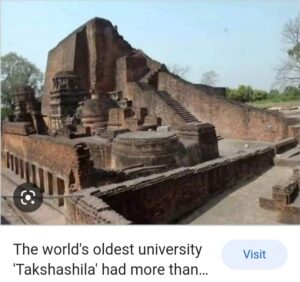
Taxila

Plato,s Academy
Thirdly, during the era of mad rush for territorial aggression and expansion by different kingdoms, many a time the language of the vanquished clan got lost. The winners enforced their own language over the defeated territories. So the benefits of knowledge acquired by the losing clan in their own language could not be used by the winners.
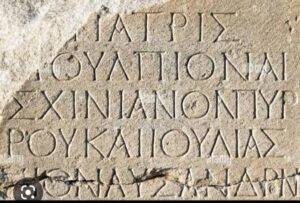
Stone Inscription in Greek
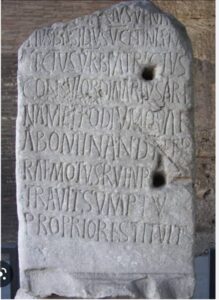
Stone Inscription in Latin
In the history of our Indian sub-continent, similar examples of history being lost in midway and their restoration/reconstruction later are plenty – one may cite names of Taxila, Ajanta-Ellora, Hampi and many others.
Here, a new layer of dimension had got added. Colonialism by Europe on Asia, Africa and South American land had started from 17th century. In next 250 – 300 years, the juggernaut of European colonialism ruthlessly dominated. People in these Continents suffered from unbelievable level of exploitation and flow of wealth to the land of their European masters.. Master’s Language and culture was thrust upon the subjects. Colonising the minds of the native was complete with time. Over time, the subjects started disrespecting their own mother tongues, traditions and cultures and deemed the alien master’s language as their own. Thinking and expressing in own mother tongue was dried up, taking away the creativity in their thought process. The indigenous people did not have their own history, based on their own source material.
Then Europeans found many archaeological sites in the colonies which were lying unexplored. On an empty ground, these were like a gold mine of history, served to them on a platter. Using the wealth of local people, Europeans did the excavations, found out the source material left behind by the ancestors of local people and they reconstructed the history with their European prism and perspective. They were outsiders to the native land, they have seen the natives as tamed people, knelling at their masters’ feet. They had written history from the eyes of a winner. The texture of history thus written has a weave of heightened European megalomania, has a colour of European pride and emits a distinct odour of native despise.
That is the reason that the revolutionary discovery of ‘Zero’ by Aryabhatta in around 500 AD in Pataliputra (Patna) which had introduced the decimal system to the world and without which modern science could not have progressed this far, appears merely as a footnote in such history books.
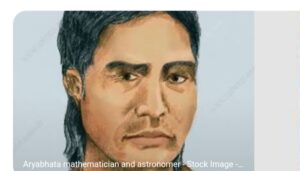
Aryabhatta
Continued from previous part
But these in a story of Electricity, all are discourses on tertiary matters, only incidental. Such matters are brought on board only to paint a broad-brushed canvas of those times, to present some idea on how the things might have progressed through those days. Otherwise, these happenings of then-prevailing times alone are subjects of many researches and theories by domain experts.
Time Progressed
In this way, the time progressed in all demography of the world – in Indian sub-continent, in China, in Arab world and in many other parts. May be the history of many achievements got lost. May be, many such history is lying undiscovered as yet. And in many instances, the history got deliberately kept under veil. The wheel of time rolled on – from antiquity it left behind the medieval period and then stepped into the era of Renaissance.
On an approximate scale, Renaissance period had started in Europe after fall of Constantinople (Istanbul) in 1453 to the hands of Sultan Mehmood of Turkey. Till then, Constantinople was the capital of Eastern Byzantine Empire which had been in power since last 1000 years and was now feebly standing on it’s last stilt. They used to follow orthodox Christianity and Greek traditions. This was in contrast to Western Roman Empire based at Rome who followed Catholic Christianity and Latin traditions. In 1453, Turkey Sultan Mehmood defeated and killed the Byzantine King Constantine XI and laid the foundation of Ottoman Empire which will last for next 500 years (till end of WW I and formation of democracy in Turkey and it’s becoming a member of new League of Nations).
Around the same time of advent of Ottomans at Istanbul, Delhi has come under Lodhi reign (1451 – 1526), a clan who came from Afganistan. They will rule at Delhi for next 75 years and will yield to Mughal reign which will last for next 250 years. Before Lodhis, when Mohammed Bin Tughlaq was ruling at Delhi 100 years ago, Moroccan world traveller Ibn Batuta had arrived at his court, took up a court an assignment and stayed for 6 years. For a passing reference, Ibn Batuta had passed through Konkan coast during his travel in India. At Southern India, the reign of Vijaynagar Kingdom was ruling with present day Hampi as their capital.
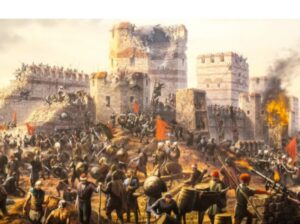
Fall of Constantinople (Istanbul), 1453
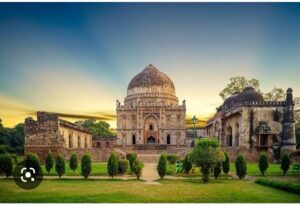
Lodhi Garden, Delhi
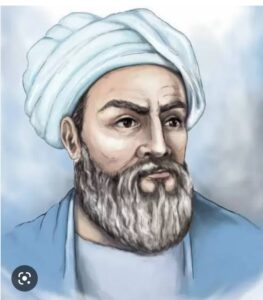
Ibn Batuta
Ottomans were Muslim by religion. When they conquered Turkey, the Christians of Byzantine Turkey left their place and migrated west wards. They spread towards the western Mediterranean areas. Italy, other western European countries had become their new home. Those areas were under Christian rule, beyond Muslim dominance.
The era of Renaissance has brought a new line of thought to human mind to shake off the middle ages behind and to embrace the modern age. Till this time, God and Religion was central to all human thoughts and activities. Now personal life of human are put on a pedestal which was separate from God and Religion. Human started creating literature or paining only for co-human. The body of knowledge and experiences that had been gathered so far was found insufficient and men felt the urge to surpass them. The new era brought that indomitable spirit. The realm of human thought experienced a unique restlessness. In Science, the practice of new experimentation, observation and inductive deduction took a firm root. Whole of Europe got intoxicated in the thrilling swing of new knowledge and discoveries. Such intensive research on various subjects yielded to their inevitable outcome – there was flood of new discoveries in various fields of human pursuits. Soon Europe started to reap the benefits of new discoveries. All of them came to the use by humanity and made human lives easier
Asian, African or South American people could not take part in this jamboree of creativity as they were kept suppressed as tamed colonies. Nor they could reap any benefits from it. They remained as mute provider of wealth to Europe’s discovery cauldron.
About the author
Amitabh Moitro

Amitabh Moitro, age 67 years, had worked in a nationalised bank for long years. He has since retired and lives in Goa
Madhab Kumar Pal
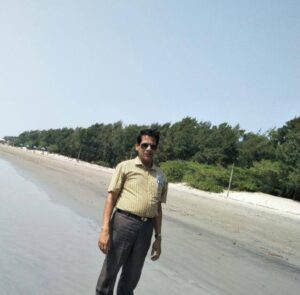
Madhab Kumar Pal (67 yrs) is an Electrical Engineer. After spending his entire working life with SAIL at it’s various units, he is now spending his retired life at Kolkata. He regularly writes for various magazines.

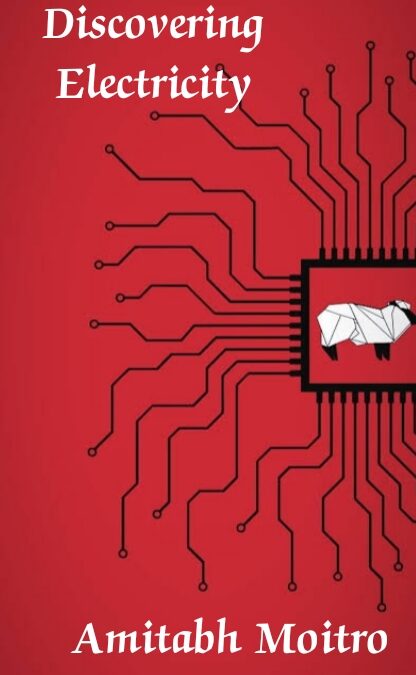
A master pieces of information on world history.
I was looking for Sanskrit knowledge era too .
My belief further got ground that history is always written as per winners view and wishes. For example Nazi region in Germany.
Discovery of Electricity got overshadowed. Shall wait for next edition.
Highly appreciable write up Sir.
Thank you for your feedback. Accordingly, some redundancies are now trimmed off. This new shortened version is now dwelling on the blog.
– Writers